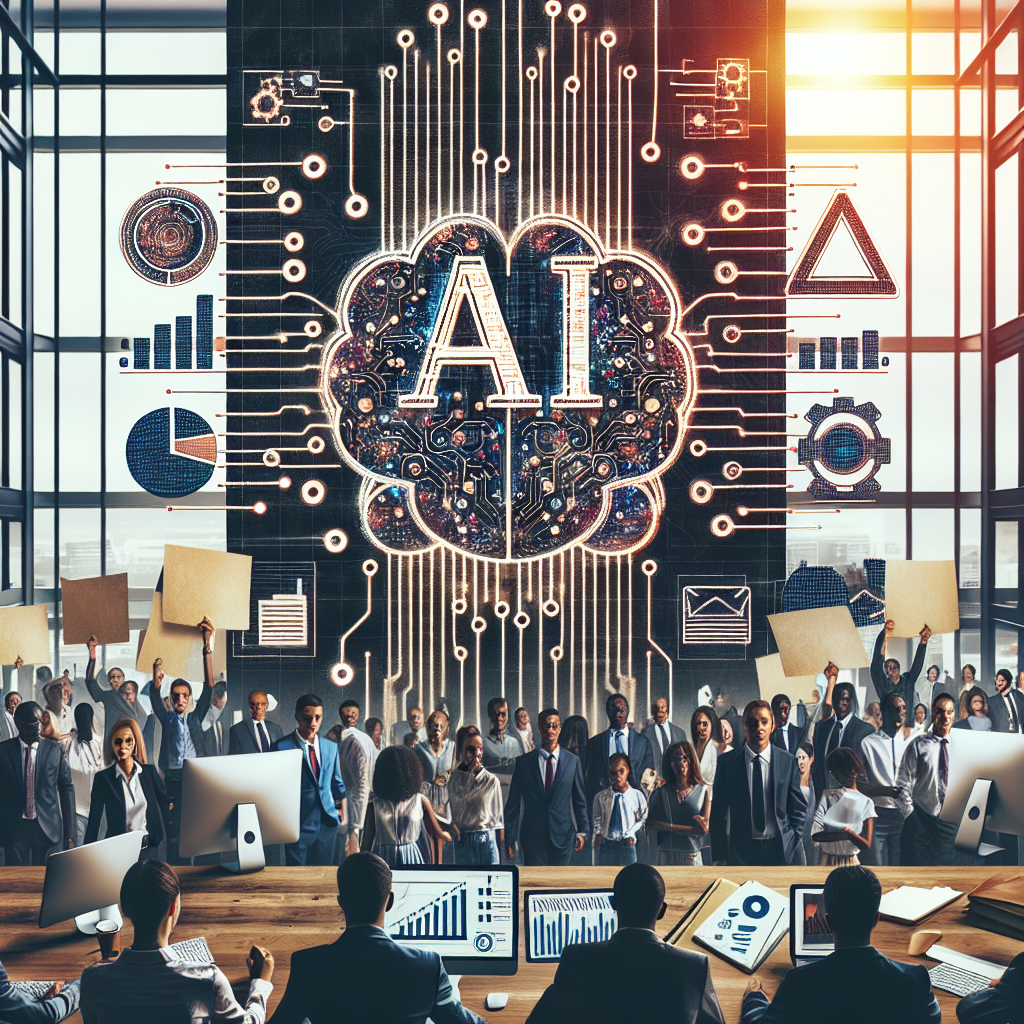Artificial intelligence (AI) has been making waves in various industries, from healthcare to finance to marketing. But one area where its impact is becoming increasingly apparent is in nonprofit advocacy and policy change. AI has the potential to revolutionize the way nonprofits engage with stakeholders, analyze data, and ultimately drive social change.
Nonprofits are constantly faced with the challenge of advocating for policies that benefit their target populations. This often involves navigating complex political landscapes, mobilizing supporters, and effectively communicating their message to decision-makers. AI can help nonprofits streamline these efforts by providing valuable insights and increasing their impact.
One way AI is revolutionizing nonprofit advocacy is through its ability to analyze vast amounts of data. Nonprofits often collect large amounts of data on their supporters, donors, and the communities they serve. AI algorithms can process this data more efficiently than humans, identifying patterns and trends that can inform advocacy strategies. For example, AI can help nonprofits target their messaging to specific demographics, predict future trends, and even recommend the most effective advocacy tactics based on past successes.
AI can also help nonprofits engage with stakeholders more effectively. Chatbots, for example, can provide real-time support to individuals seeking information or assistance from a nonprofit. These chatbots can answer common questions, provide resources, and even guide users through the advocacy process. By automating these interactions, nonprofits can free up staff time to focus on more strategic tasks.
In addition, AI can enhance the impact of nonprofit advocacy campaigns by personalizing communication and outreach. By analyzing supporter data, AI can tailor messages to resonate with different segments of the population. This level of personalization can increase engagement and ultimately drive more meaningful policy change.
Furthermore, AI can help nonprofits track the impact of their advocacy efforts in real time. By analyzing social media data, news coverage, and other sources, AI algorithms can provide insights into how a particular advocacy campaign is resonating with the public. Nonprofits can use this information to adjust their strategy on the fly, maximizing their impact.
Overall, AI has the potential to revolutionize nonprofit advocacy by providing valuable insights, streamlining operations, and increasing impact. As the technology continues to evolve, nonprofits will have even more tools at their disposal to drive social change.
FAQs:
Q: How can nonprofits incorporate AI into their advocacy efforts?
A: Nonprofits can start by identifying areas of their advocacy work that could benefit from AI, such as data analysis, stakeholder engagement, or impact tracking. From there, they can explore AI solutions that align with their goals and budget.
Q: Are there ethical considerations to keep in mind when using AI in nonprofit advocacy?
A: Yes, nonprofits should be mindful of issues such as data privacy, bias in AI algorithms, and transparency in decision-making. It’s important to ensure that AI is being used ethically and responsibly to drive positive social change.
Q: What are some examples of nonprofits successfully using AI in advocacy?
A: One example is the organization DoSomething, which uses AI-powered chatbots to engage young people in social change campaigns. Another example is the ACLU, which uses AI to analyze court decisions and identify patterns that can inform their advocacy work.
Q: How can nonprofits without a large budget leverage AI in their advocacy efforts?
A: There are a growing number of affordable AI tools and platforms that nonprofits can use to enhance their advocacy work. Additionally, many tech companies offer discounts or pro bono services to nonprofits looking to incorporate AI into their operations.
In conclusion, AI is revolutionizing nonprofit advocacy and policy change by providing valuable insights, streamlining operations, and increasing impact. As nonprofits continue to harness the power of AI, they will be better equipped to drive social change and create a more just and equitable society.

